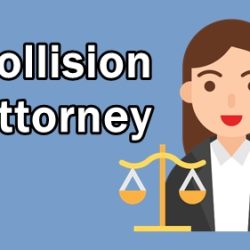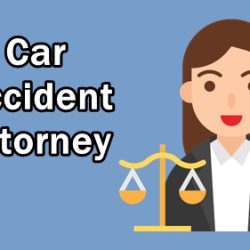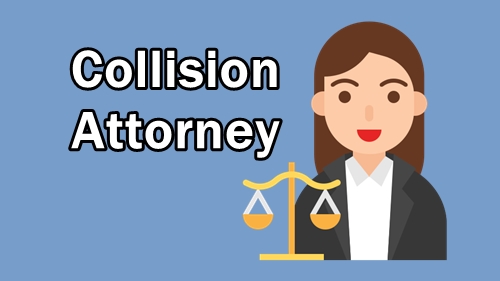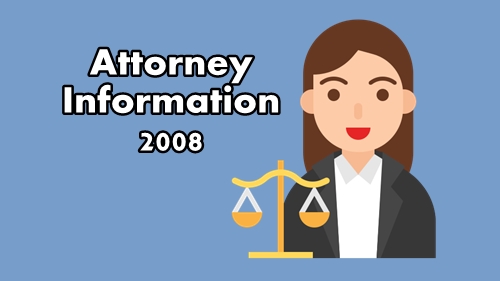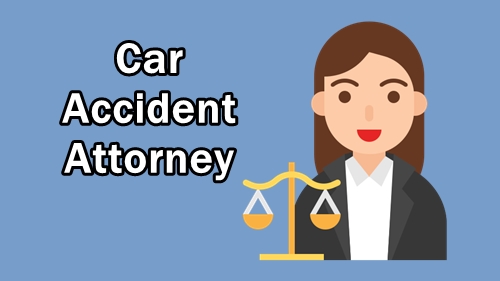
Car Accident Attorney Legality
The legality of hiring and working with a car accident attorney is well-established and is a common practice in many countries, including the United States. Here are the key points surrounding the legality and role of car accident attorneys:
1. Purpose of a Car Accident Attorney
- Legal Representation: They help individuals involved in car accidents protect their legal rights and seek compensation for damages or injuries caused by another party’s negligence.
- Negotiations: Attorneys negotiate with insurance companies to ensure fair settlements.
- Litigation: If an agreement cannot be reached, they can file a lawsuit and represent the client in court.
2. Licensing and Qualifications
- Car accident attorneys must have a valid law license and be in good standing with their state bar association.
- They must follow ethical and legal guidelines, such as avoiding conflicts of interest and maintaining client confidentiality.
3. Legal Framework
- Car accident attorneys operate within personal injury law, which includes statutes, regulations, and case law specific to motor vehicle accidents.
- Common claims involve negligence, liability, and damages (economic, non-economic, or punitive).
4. Fee Arrangements
- Contingency Fees: Most car accident attorneys work on a contingency fee basis, meaning they only get paid if the client wins the case or receives a settlement.
- Fee structures must be clearly explained and agreed upon in writing, adhering to local laws and ethical standards.
5. Filing Deadlines
- Clients must be aware of statutes of limitations, which set the timeframe for filing a lawsuit after an accident. Attorneys help ensure timely action.
6. Consumer Protection
- Legal systems and bar associations regulate attorney behavior to protect clients from unethical practices.
- Clients can file complaints or seek remedies if they experience malpractice or misrepresentation.
7. Common Legal Issues Addressed
- Determining fault and liability.
- Assessing damages, including medical expenses, lost wages, property damage, and pain and suffering.
- Dealing with insurance disputes.
Conclusion
Hiring a car accident attorney is entirely legal and often advisable for individuals seeking fair compensation or navigating complex legal systems. It’s essential to research and select an attorney with experience, good reviews, and a clear understanding of local laws.
Essential Resources for Handling Large-Scale Car Accident Cases
Handling large-scale car accident cases requires robust resources and careful coordination to effectively manage the complexities of multiple parties, substantial damages, and potential legal challenges. Below are essential resources and strategies for successfully addressing such cases:
1. Legal Expertise
- Specialized Attorneys: Lawyers experienced in personal injury law and large-scale accident cases.
- Litigation Support Teams: Paralegals, case managers, and legal assistants for research and documentation.
- Expert Witnesses: Professionals in accident reconstruction, medical evaluation, and financial loss assessment.
2. Investigation and Evidence Collection
- Accident Reconstruction Specialists: To analyze crash data and recreate events.
- Forensic Experts: To assess vehicle damage, road conditions, and potential product defects.
- Drone Technology: For capturing aerial views of accident sites.
- Black Box Data Analysts: For extracting and interpreting data from vehicle event data recorders (EDRs).
3. Technology and Case Management Tools
- Document Management Systems: For organizing case files, evidence, and communications.
- Case Management Software: Platforms like Clio or MyCase to track progress, deadlines, and client communications.
- Data Analytics: Tools to analyze trends in settlements or trial outcomes for similar cases.
- Courtroom Presentation Software: Programs like TrialDirector for presenting evidence in court.
4. Financial Resources
- Litigation Funding: Access to legal funding companies to cover upfront costs like expert witnesses and court fees.
- Structured Settlement Advisors: To assist clients in managing large settlements.
5. Medical and Rehabilitation Expertise
- Medical Experts: For evaluating injuries and long-term impacts on victims.
- Life Care Planners: To estimate future medical needs and associated costs.
- Therapists and Counselors: To provide psychological support for victims dealing with trauma.
6. Insurance Negotiation and Analysis
- Claims Adjusters: Experienced professionals to review and negotiate insurance settlements.
- Policy Analysts: To interpret and leverage insurance coverage details for compensation.
7. Coordination and Communication
- Mediation Services: For resolving disputes efficiently without prolonged litigation.
- Crisis Communication Teams: To handle media inquiries and public relations in high-profile cases.
8. Research and Precedent
- Legal Databases: Access to Westlaw, LexisNexis, or similar platforms for researching case law and statutes.
- Precedent Libraries: A compilation of prior similar cases for strategy development.
9. Courtroom Preparation
- Jury Consultants: To assist in jury selection and trial strategy.
- Mock Trials: For testing arguments and preparing witnesses.
- Visualization Tools: Infographics, animations, and 3D models for effective presentations.
10. Client Support
- Victim Advocacy Groups: To provide additional support and resources for clients.
- Communication Platforms: Regular updates via secure portals or apps to keep clients informed.
Key Considerations
- Compliance with Regulations: Adhering to local laws, including statutes of limitations and procedural rules.
- Team Collaboration: Coordinating efforts between legal, medical, and financial experts.
- Thorough Documentation: Keeping meticulous records of all evidence, communications, and proceedings.
By leveraging these resources, legal professionals can effectively navigate the complexities of large-scale car accident cases, ensuring comprehensive representation for all involved parties.
Car Accident Attorney Financial Experts
Financial experts play a crucial role in car accident cases, particularly those involving significant damages or long-term financial implications. They provide analysis, calculations, and testimony to establish the economic impact of the accident on the parties involved. Here are key financial experts and their roles in car accident cases:
1. Forensic Accountants
- Role: Analyze financial records to quantify economic losses such as lost wages, reduced earning capacity, and business disruptions.
- Responsibilities:
- Calculate past and future income loss.
- Assess the financial impact of permanent disabilities.
- Prepare detailed financial reports for negotiations or court presentations.
2. Economic Experts
- Role: Evaluate the broader economic impact of the accident, including future financial implications.
- Responsibilities:
- Project inflation-adjusted earnings loss.
- Assess the cost of future medical care or rehabilitation.
- Provide testimony on complex financial data during trials.
3. Actuaries
- Role: Specialize in risk assessment and financial modeling to determine long-term costs and damages.
- Responsibilities:
- Calculate life expectancy and its impact on damages.
- Estimate pension or retirement fund losses due to the accident.
- Evaluate structured settlement options.
4. Financial Planners
- Role: Help victims manage settlements or awards to ensure long-term financial stability.
- Responsibilities:
- Develop strategies for managing lump-sum payments.
- Advise on investment options for settlement funds.
- Plan for future expenses, including medical or caregiving costs.
5. Vocational Economists
- Role: Assess how injuries impact a victim’s ability to work and earn.
- Responsibilities:
- Evaluate changes in employability due to injuries.
- Quantify the value of lost career opportunities.
- Provide insight into retraining or vocational rehabilitation costs.
6. Insurance Experts
- Role: Analyze insurance policies and ensure adequate compensation from insurers.
- Responsibilities:
- Review policy coverage and exclusions.
- Assess underinsured or uninsured motorist claims.
- Negotiate with insurance companies to maximize payouts.
7. Tax Consultants
- Role: Address the tax implications of settlements or awards.
- Responsibilities:
- Determine the taxable portion of compensation (e.g., punitive damages).
- Advise on structuring settlements to minimize tax burdens.
- Ensure compliance with tax laws during the case resolution process.
8. Cost Estimation Experts
- Role: Provide detailed estimates of future costs related to the accident.
- Responsibilities:
- Project costs for long-term care, home modifications, and assistive devices.
- Estimate ongoing medical expenses and therapy needs.
- Evaluate vehicle or property repair/replacement costs.
9. Structured Settlement Advisors
- Role: Assist in arranging settlements that provide periodic payments over time.
- Responsibilities:
- Design tailored payment plans to meet the victim’s needs.
- Ensure financial security for victims with ongoing expenses.
- Provide insights into settlement annuities.
10. Litigation Finance Specialists
- Role: Support plaintiffs or attorneys in managing the costs of litigation.
- Responsibilities:
- Arrange funding to cover expert fees, court costs, and other expenses.
- Advise on repayment structures post-settlement.
Key Contributions of Financial Experts
- Accuracy: Ensure precise calculations of damages for negotiations or trials.
- Credibility: Provide authoritative and unbiased testimony to strengthen the case.
- Strategy: Help attorneys and clients make informed decisions regarding settlements or awards.
Financial experts are indispensable in car accident cases, especially when large sums of money or long-term impacts are involved. Their expertise ensures fair and comprehensive compensation for victims.
How a Car Accident Lawyer Can Help?
A car accident lawyer provides valuable assistance to individuals involved in accidents, helping them navigate the legal and procedural complexities to secure fair compensation and protect their rights. Here’s a breakdown of how a car accident lawyer can help:
1. Legal Guidance
- Understanding Rights: Educate clients about their legal rights and options following an accident.
- Applicable Laws: Explain relevant traffic, personal injury, and insurance laws that apply to the case.
2. Investigation of the Accident
- Gathering Evidence: Collect police reports, witness statements, photos, videos, and other critical evidence.
- Reconstructing the Accident: Work with accident reconstruction experts to establish fault and causation.
- Analyzing Fault: Determine liability by reviewing the circumstances and evidence of the crash.
3. Dealing with Insurance Companies
- Negotiation: Communicate with insurance adjusters to negotiate fair settlements.
- Claim Filing: Assist in filing claims promptly and correctly to avoid delays or denials.
- Dispute Resolution: Handle disputes with insurers, such as denying claims or offering inadequate settlements.
4. Assessing Damages
- Economic Damages: Evaluate medical expenses, lost wages, and property damage.
- Non-Economic Damages: Calculate pain and suffering, emotional distress, and loss of enjoyment of life.
- Future Costs: Estimate long-term costs, including rehabilitation, ongoing medical care, and diminished earning capacity.
5. Representation in Legal Proceedings
- Filing Lawsuits: Prepare and file lawsuits if a fair settlement cannot be reached.
- Court Representation: Advocate for the client during court proceedings, including trial if necessary.
- Mediation and Arbitration: Represent the client in alternative dispute resolution processes.
6. Proving Liability and Fault
- Establishing Negligence: Demonstrate that the other party failed to exercise reasonable care.
- Using Experts: Leverage expert testimony from medical professionals, accident reconstructionists, and financial analysts.
7. Handling Paperwork and Deadlines
- Legal Documents: Draft and file necessary legal documents, including complaints and motions.
- Statutes of Limitations: Ensure the case is filed within the legal time limits.
8. Offering Emotional Support
- Stress Relief: Take over the legal and insurance processes so clients can focus on recovery.
- Empathy: Provide compassionate support during a challenging time.
9. Maximizing Compensation
- Fair Settlement: Advocate for the highest possible compensation to cover all damages.
- Penalty Awareness: Pursue punitive damages in cases of egregious negligence, such as DUI or reckless driving.
10. Specialized Expertise
- Complex Cases: Handle multi-vehicle accidents, hit-and-runs, and accidents involving commercial vehicles.
- Dealing with Multiple Parties: Manage cases involving multiple defendants or insurers.
When to Hire a Car Accident Lawyer
- If liability is disputed.
- When injuries are severe or long-term.
- If the insurance company offers a low settlement.
- In cases involving uninsured or underinsured motorists.
- When dealing with wrongful death claims.
A car accident lawyer acts as a guide, advocate, and negotiator, ensuring that the client’s rights are protected and they receive fair compensation for their losses.
How a Truck Accident Lawyer Help For Some Collision Cases
Truck accident cases are often more complex than typical car accidents due to factors like the size of the vehicles involved, federal and state regulations governing trucking, and the severity of injuries and damages. A truck accident lawyer provides specialized legal assistance to navigate these challenges effectively. Here’s how they can help:
1. Investigating the Accident Thoroughly
- Identifying All Liable Parties: In truck accidents, liability may extend beyond the driver to include:
- Trucking companies
- Maintenance providers
- Truck manufacturers (for defective parts)
- Cargo loaders (for improperly loaded cargo)
- Evidence Collection:
- Securing electronic logging device (ELD) data, GPS records, and black box data from the truck.
- Gathering maintenance logs, inspection reports, and hours-of-service records.
- Analyzing police reports, photos, videos, and eyewitness accounts.
2. Navigating Federal and State Regulations
- Understanding Trucking Laws: Truck accident lawyers are familiar with laws and regulations such as:
- Federal Motor Carrier Safety Administration (FMCSA) rules on driver hours, maintenance, and cargo limits.
- State-specific traffic and safety laws.
- Compliance Issues: Identify violations like exceeding weight limits, inadequate rest periods, or poor vehicle maintenance.
3. Proving Negligence and Liability
- Driver Negligence: Investigate if the truck driver was fatigued, distracted, or under the influence.
- Trucking Company Negligence:
- Faulty hiring practices (e.g., hiring unqualified drivers).
- Pressuring drivers to meet unrealistic schedules.
- Neglecting vehicle maintenance.
- Product Liability: Determine if defective truck parts contributed to the accident.
- Road Conditions: Explore whether unsafe road designs or maintenance contributed.
4. Handling Insurance Companies
- Complex Insurance Policies: Trucking accidents often involve multiple insurance policies, including those for:
- The driver
- The trucking company
- The cargo owner
- Negotiations: Handle tough negotiations to secure maximum compensation, avoiding lowball offers.
- Litigation: File a lawsuit if fair settlements cannot be reached.
5. Assessing and Maximizing Compensation
- Economic Damages:
- Medical bills (immediate and long-term care).
- Lost wages and diminished earning capacity.
- Property damage (e.g., vehicle repair or replacement).
- Non-Economic Damages:
- Pain and suffering.
- Emotional distress.
- Loss of companionship (in wrongful death cases).
- Punitive Damages: Pursue these in cases of egregious negligence, such as reckless driving or falsified logs.
6. Leveraging Expert Witnesses
- Accident Reconstructionists: Recreate the crash to establish fault.
- Medical Experts: Testify on the severity and long-term impact of injuries.
- Industry Specialists: Explain trucking industry practices and compliance failures.
- Economists: Calculate the financial impact of the accident, including future losses.
7. Representing Clients in Court
- Litigation Expertise: Prepare a compelling case for trial if settlement negotiations fail.
- Jury Persuasion: Present evidence and expert testimony effectively to secure favorable verdicts.
8. Ensuring Compliance with Legal Deadlines
- Statutes of Limitations: File claims within the time limit for personal injury or wrongful death cases.
- Preserving Evidence: Act swiftly to secure critical evidence before it’s lost or destroyed.
9. Emotional and Practical Support
- Stress Reduction: Handle the legal complexities so clients can focus on recovery.
- Guidance: Offer compassionate advice during a challenging time.
Why Truck Accident Cases Are Unique
- Severity of Injuries: Truck accidents often involve catastrophic injuries or fatalities.
- Higher Stakes: Larger damages mean more aggressive defense from trucking companies and their insurers.
- Multiple Parties: Determining liability can be more complex due to the number of parties involved.
When to Hire a Truck Accident Lawyer
- If the accident involves severe injuries or fatalities.
- When liability is unclear or disputed.
- If the trucking company or its insurer denies responsibility.
- When dealing with commercial insurance policies or federal trucking regulations.
A truck accident lawyer ensures that victims of trucking collisions receive the full compensation they deserve while holding all responsible parties accountable. Their expertise in trucking laws, industry practices, and complex litigation makes them indispensable for such cases.
Car Accident Attorney Specialized Support for Catastrophic Injuries
When car accidents result in catastrophic injuries, the stakes are higher due to the profound and often permanent impact on the victim’s life. A car accident attorney specializing in catastrophic injuries offers tailored support to navigate these cases and maximize compensation for clients. Here’s how they provide specialized assistance:
1. Comprehensive Case Evaluation
- Understanding the Severity:
- Evaluate the nature and extent of injuries, such as spinal cord injuries, traumatic brain injuries (TBIs), amputations, or severe burns.
- Determine the long-term medical, financial, and emotional impact of the injuries.
- Legal Feasibility: Assess the viability of the claim, including fault determination and potential compensation sources.
2. Specialized Medical Expertise
- Medical Records Review: Work closely with medical professionals to thoroughly understand the injuries and their implications.
- Medical Experts:
- Retain specialists to provide opinions on the extent of the injuries and their long-term effects.
- Collaborate with life care planners to estimate future medical needs and costs.
3. Calculating Full Compensation
- Economic Damages:
- Immediate and ongoing medical expenses, including surgeries, therapy, and medications.
- Costs of assistive devices, home modifications, and caregiving.
- Lost income and diminished earning potential due to disability.
- Non-Economic Damages:
- Pain and suffering.
- Emotional distress and psychological trauma.
- Loss of enjoyment of life or companionship.
- Punitive Damages: Pursue these in cases involving gross negligence, such as reckless driving or DUI.
4. Building a Strong Case
- Accident Reconstruction:
- Partner with accident reconstruction experts to establish liability.
- Use advanced tools and methods, such as 3D modeling, to present evidence effectively.
- Witness Testimony:
- Interview witnesses to gather detailed accounts.
- Retain expert witnesses, including vocational rehabilitation specialists and economists, to quantify losses.
5. Navigating Insurance Complexities
- Negotiating with Insurers:
- Handle negotiations with aggressive insurance adjusters aiming to minimize payouts.
- Advocate for fair compensation that reflects the catastrophic nature of the injuries.
- Insurance Disputes:
- Address challenges such as policy limits or denied claims.
- Explore underinsured or uninsured motorist coverage options.
6. Litigation Expertise
- Filing a Lawsuit:
- If a fair settlement cannot be reached, file a lawsuit against the liable parties.
- Handle all aspects of pre-trial discovery, motions, and evidence presentation.
- Trial Representation:
- Present a compelling case to the jury, supported by expert testimony and well-documented evidence.
- Address the long-term implications of the injuries on the client’s life.
7. Emotional and Practical Support
- Reducing Stress: Handle the legal complexities so clients and their families can focus on recovery.
- Guidance: Offer empathetic support to help clients navigate life changes caused by their injuries.
8. Coordinating with Rehabilitation and Support Services
- Vocational Rehabilitation: Work with specialists to assess potential for retraining or returning to work.
- Community Resources: Connect clients with support groups, counseling, and other resources to aid recovery.
9. Identifying All Liable Parties
- Primary Negligence:
- Prove the fault of the other driver or parties involved.
- Additional Defendants:
- Investigate potential liability of vehicle manufacturers (defective parts), government entities (unsafe road conditions), or employers (in cases involving company vehicles).
10. Ensuring Timely Action
- Statute of Limitations: File claims within the legal deadlines to preserve the client’s right to compensation.
- Preserving Evidence: Act quickly to secure critical evidence before it is lost or destroyed.
Examples of Catastrophic Injuries Handled
- Traumatic Brain Injuries (TBI): Cognitive impairments, memory loss, or permanent disability.
- Spinal Cord Injuries: Paralysis, including paraplegia or quadriplegia.
- Severe Burn Injuries: Scarring, disfigurement, and associated medical complications.
- Amputations: Loss of limbs and the need for prosthetics.
- Multiple Fractures: Complex recovery requiring long-term rehabilitation.
Why Specialized Support is Essential
- Catastrophic injury cases involve significant financial stakes, complex medical evidence, and a need for long-term planning.
- A specialized attorney ensures that clients receive compensation to cover both immediate and future needs, securing their financial and emotional well-being.
By leveraging experience, resources, and compassion, a car accident attorney specializing in catastrophic injuries provides comprehensive legal and personal support, helping victims rebuild their lives after devastating accidents.
Car Accident Attorney Rehabilitation
A car accident attorney can play a vital role in supporting clients through the rehabilitation process after an accident, particularly when injuries require extensive medical care and recovery. Their involvement ensures that clients receive the necessary treatment and financial support to rebuild their lives. Here’s how an attorney aids
Car Accident Attorney Special Legal Issues
Car accident cases can involve special legal issues that require the expertise of a seasoned car accident attorney. These issues often arise from unique circumstances, complex liability questions, or intricate legal and procedural matters. Here’s how attorneys address these specialized challenges:
1. Multi-Vehicle Accidents
- Challenges: Determining liability in multi-vehicle accidents is complex, as multiple parties may share fault.
- Attorney’s Role:
- Analyze accident reports and reconstruct the crash.
- Identify all potentially liable parties, including other drivers, manufacturers, or roadway maintenance agencies.
- Ensure appropriate apportionment of fault under comparative or contributory negligence laws.
2. Commercial Vehicle Accidents
- Challenges: Cases involving trucks, buses, or delivery vehicles often require knowledge of federal and state regulations.
- Attorney’s Role:
- Investigate compliance with Federal Motor Carrier Safety Administration (FMCSA) rules.
- Examine driver logs, maintenance records, and company policies.
- Handle claims against large corporations and their insurers.
3. Uninsured or Underinsured Motorist (UM/UIM) Claims
- Challenges: Victims may struggle to obtain adequate compensation when the at-fault driver lacks sufficient insurance coverage.
- Attorney’s Role:
- Review the client’s UM/UIM policy and explore coverage options.
- Negotiate directly with the client’s insurer to maximize recovery.
- Pursue litigation if the insurer acts in bad faith.
4. Hit-and-Run Cases
- Challenges: Identifying and holding the responsible party accountable can be difficult in hit-and-run accidents.
- Attorney’s Role:
- Work with law enforcement to locate the at-fault driver.
- Use surveillance footage, witness statements, and other evidence to track down the perpetrator.
- File claims under the client’s uninsured motorist coverage if the driver cannot be identified.
5. Drunk or Drugged Driving Accidents
- Challenges: Proving impairment and pursuing punitive damages.
- Attorney’s Role:
- Gather evidence from police reports, breathalyzer tests, and toxicology results.
- Advocate for punitive damages to penalize reckless behavior.
- Pursue compensation from third parties, such as bars or hosts, under dram shop or social host liability laws (where applicable).
6. Pedestrian and Bicycle Accidents
- Challenges: Proving fault in accidents involving vulnerable road users.
- Attorney’s Role:
- Investigate driver negligence, such as speeding or failure to yield.
- Analyze road design and traffic signal placement to identify contributing factors.
- Work with traffic experts to establish liability.
7. Defective Vehicle or Part Claims
- Challenges: Accidents caused by mechanical failures or defective parts involve product liability law.
- Attorney’s Role:
- Investigate potential design or manufacturing defects.
- File claims against automakers, part manufacturers, or maintenance providers.
- Work with engineering experts to demonstrate how defects caused the accident.
8. Wrongful Death Cases
- Challenges: Families of deceased victims must navigate complex legal and emotional challenges.
- Attorney’s Role:
- File wrongful death claims to recover damages for loss of income, companionship, and funeral expenses.
- Advocate for punitive damages in cases involving gross negligence or intentional harm.
- Provide compassionate support to grieving families.
9. Accidents Involving Government Entities
- Challenges: Suing government agencies for accidents caused by poor road design or maintenance requires adherence to strict procedural rules.
- Attorney’s Role:
- Investigate conditions like potholes, inadequate signage, or defective traffic signals.
- File claims within statutory deadlines for claims against public entities.
- Build a case under sovereign immunity exceptions.
10. Catastrophic Injuries
- Challenges: Severe injuries like traumatic brain injuries, paralysis, or amputations require long-term financial and medical planning.
- Attorney’s Role:
- Collaborate with medical experts, life care planners, and economists to calculate damages.
- Pursue compensation for both immediate and future needs.
- Negotiate structured settlements or annuities to ensure long-term financial security.
11. Comparative and Contributory Negligence
- Challenges: Laws regarding shared fault vary by state and can limit recovery.
- Attorney’s Role:
- Advocate to minimize the client’s percentage of fault under comparative negligence rules.
- Navigate contributory negligence laws to maximize compensation despite partial fault.
12. Statutes of Limitations
- Challenges: Failing to file within the legal deadline can bar recovery.
- Attorney’s Role:
- Ensure compliance with state-specific time limits for personal injury or wrongful death claims.
- Act swiftly to preserve evidence and file necessary documents.
13. Insurance Bad Faith
- Challenges: Insurers may delay, deny, or undervalue claims.
- Attorney’s Role:
- Hold insurers accountable for bad faith practices.
- File lawsuits seeking additional damages for the insurer’s misconduct.
- Negotiate fair settlements through skilled advocacy.
14. Emotional Distress and Non-Economic Damages
- Challenges: Quantifying subjective damages like pain, suffering, and emotional distress.
- Attorney’s Role:
- Work with psychologists or counselors to document the psychological impact of the accident.
- Present compelling evidence to justify substantial non-economic damages.
15. Legal Challenges for Minors
- Challenges: Special considerations apply to cases involving injured children.
- Attorney’s Role:
- Navigate guardianship or trust arrangements for compensation.
- Advocate for damages covering long-term care and education needs.
Why Hire a Specialized Car Accident Attorney?
Car accident attorneys bring:
- Expertise in dealing with unique legal issues and insurance complexities.
- Access to resources like expert witnesses and investigators.
- Knowledge of state-specific laws and procedural requirements.
- Dedication to securing maximum compensation for clients.
A specialized attorney ensures that every legal avenue is explored, protecting the client’s rights and providing the best chance for a favorable outcome.

